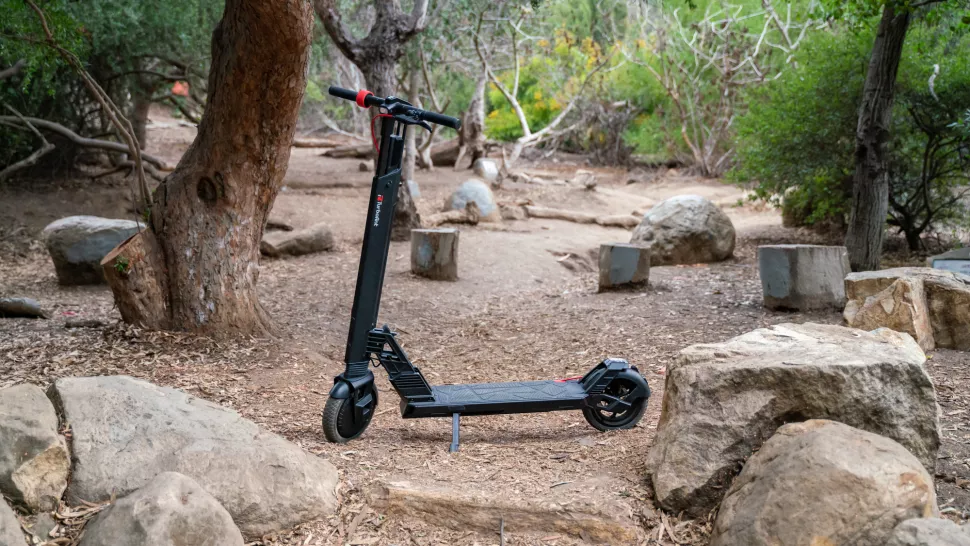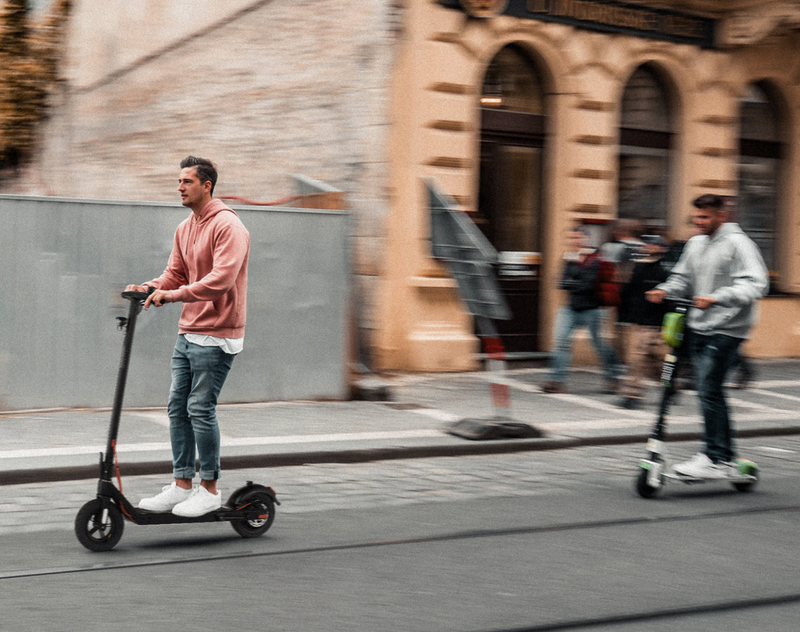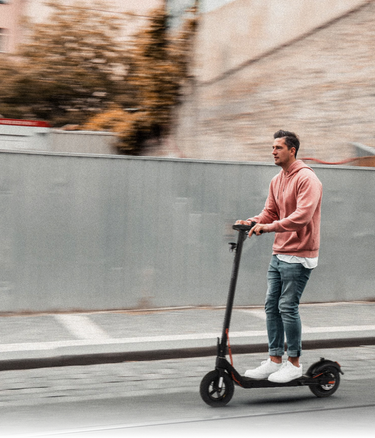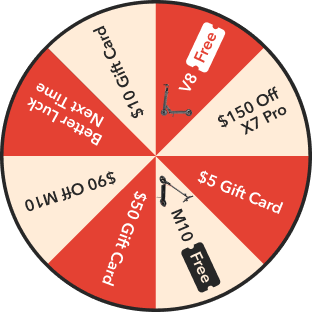Are you a beginner camper looking for a comprehensive guide to make your camping experience enjoyable and safe? Look no further! Whether you're a seasoned camper or a first-timer, our camping guide has all the information you need to plan a fun and safe camping trip.
Before camping, we should know about different types of camping, essential camping tools, and camping safety tips. We also need to plan some fun camping activities to enjoy outdoor time. If you are planning an RV road trip, you should know what to do on an RV road trip including RV road trip ideas, road trip essentials, and important RV trip tips to keep in mind. Whether you're a first-time camper or just looking for some helpful tips, our guide has got you covered.
1. Choose Your Campsite
Once you've decided to go camping, the next step is to choose your campsite. Picking the right destination and camping spot can make all the difference in ensuring a successful trip.
- First, consider your preferred camping style and activities to find the ideal destination.
- Look for level ground and avoid low-lying areas that may flood.
- Check the weather forecast and consider factors like wind, shade, and noise levels.
- Distance to water sources and bathrooms is also important to note, as well as potential wildlife encounters.
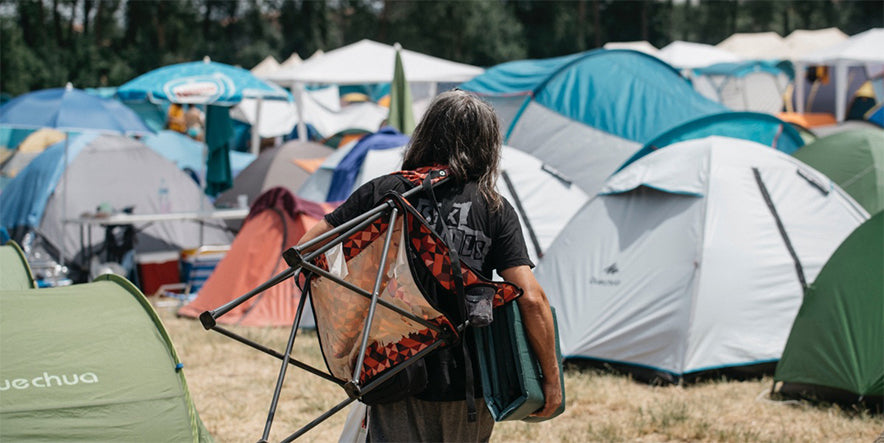
2. Choose a Time to Go
When planning your camping trip, it's essential to choose the right time of year to go. Consider the climate, wildlife, and scenery when picking the perfect time for your outdoor adventure.
- Look into the weather patterns for the area you're planning to camp in. Some areas are prone to heavy rain, extreme heat, or sudden temperature drops, which can put a damper on your trip.
- Research the wildlife in the area and consider the time of year they are most active. This will ensure you stay safe and avoid any dangerous encounters.
- Think about the scenery and what time of year it looks its best. Some destinations may be particularly stunning during a specific season, such as when the leaves change color in the fall, or when wildflowers are in bloom during the spring.

3. Purchasing Your Tent
One of the most important pieces of camping equipment you'll need is a tent. Choosing the right tent for your needs can make or break your camping experience. There are several factors to consider when selecting a tent, including size, weight, material, and features.
- Determine how many people will be sharing the tent and how much gear you'll need to store inside.
- Consider the weight of the tent, especially if you plan to do a lot of backpacking or hiking.
- Materials such as nylon or polyester are lightweight and durable, making them popular choices for camping tents.
- You'll want to ensure your tent has adequate ventilation to prevent condensation buildup, and a rainfly to keep you dry during rainy weather.
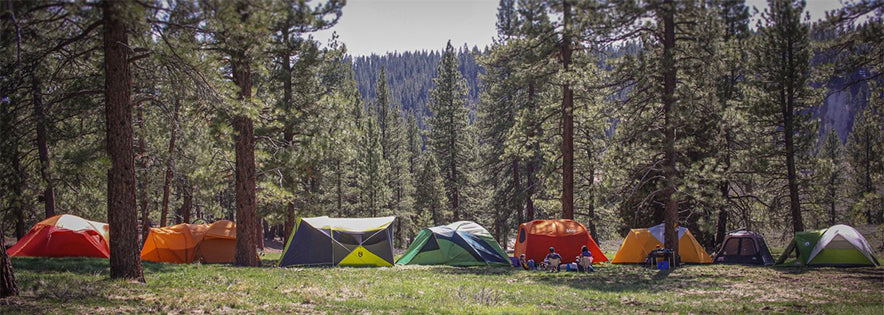
4. Get the Right Essentials
When it comes to camping, having the right essentials can make all the difference. There are several essential items to consider when preparing for your camping trip, including a sleeping bag, sleeping pad, and camping stove,etc.
One of the most crucial accessories to purchase is a quality sleeping bag. A sleeping bag will keep you warm and comfortable throughout the night, ensuring you get a good night's sleep. When choosing a sleeping bag, consider factors such as temperature rating, insulation, and size.
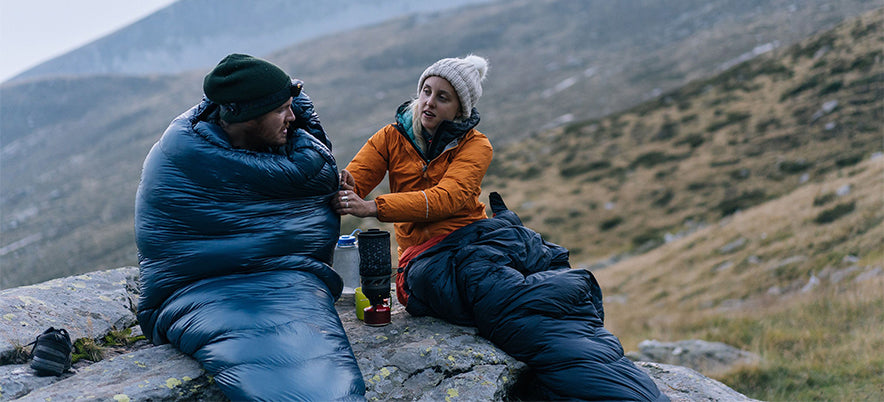
5. Practice Pitching Your Tent
One of the most important things you'll need to do when camping is to pitch your tent. Doing so quickly and efficiently can make all the difference when setting up camp. It's important to practice pitching your tent at home before you head out on your trip.
- Start by selecting a suitable location for your tent. Look for a flat, level surface that's free of rocks and debris.
- Lay out your tent and assemble the poles, if necessary.
- Stake out the corners of your tent and pull the fabric taut.
- Make sure to use the guy lines to secure the tent to the ground and prevent it from flapping in the wind.
- Add any additional components, such as a rainfly or vestibule.
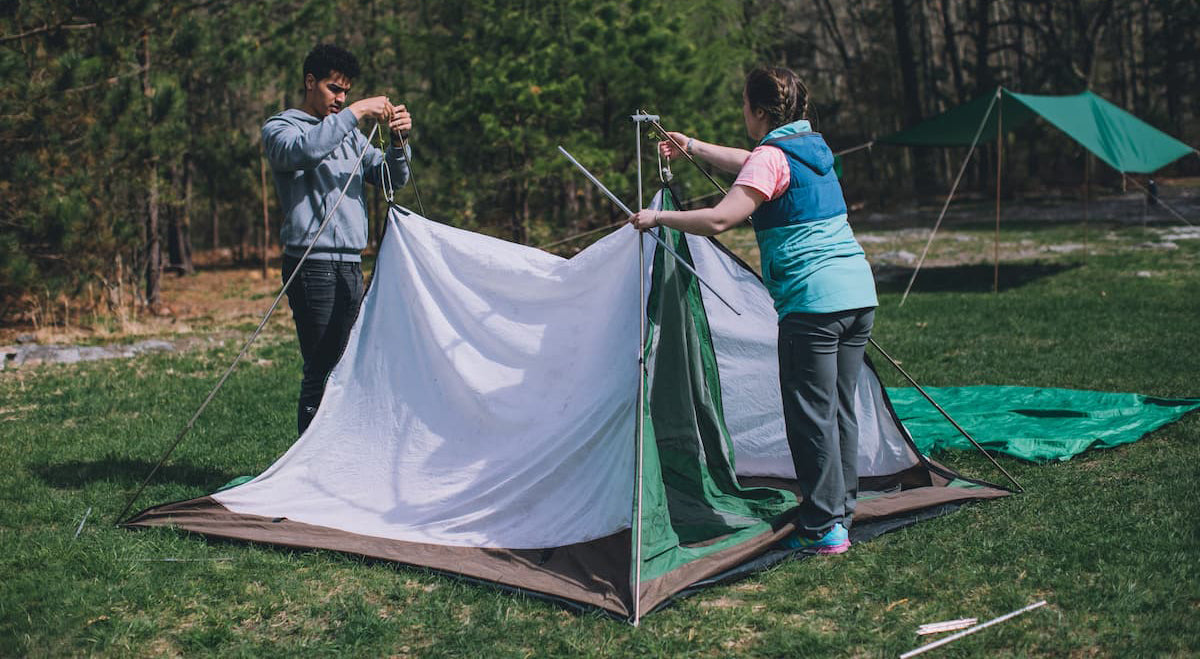
6. Have a Practice Camp
If you're new to camping, it can be helpful to have a practice run before your actual trip. This can help you get familiar with your equipment, test your gear, and identify any issues that you may need to address. Consider setting up a practice camp in your backyard or at a nearby campsite.
7. Setting up at the Campsite
Once you've chosen your campsite and pitched your tent, it's time to set up camp. This involves arranging your gear, creating a comfortable living space, and preparing for meals and other activities.
Start by creating a designated area for your gear, such as a corner of your tent or a nearby table. This will help keep your gear organized and easily accessible. Next, arrange your sleeping area, including your sleeping bag, pad, and any additional bedding or pillows. When setting up your living space, consider the layout of your campsite and the natural surroundings.
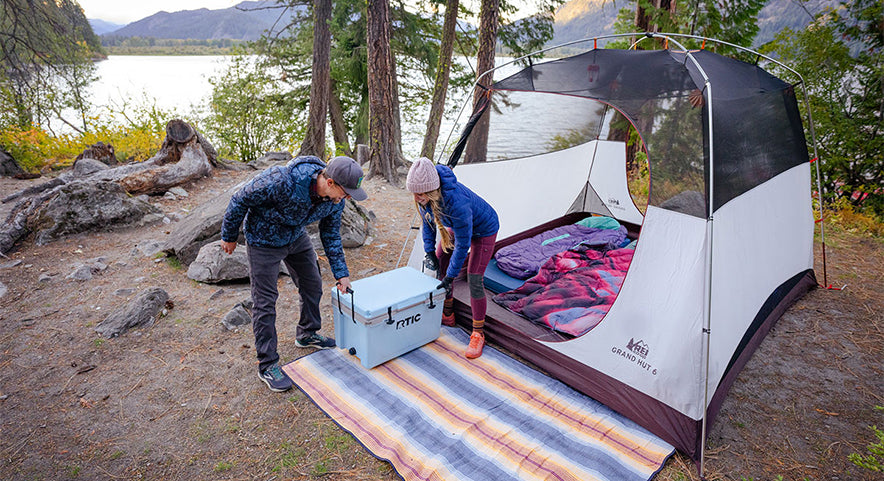
8. Plan Your Meals Beforehand
One of the keys to a successful camping trip is to plan your meals beforehand. This ensures that you have enough food for the duration of your trip and helps you avoid any unnecessary stress or last-minute trips to the store. When planning your meals, consider bringing non-perishable items that are easy to prepare, such as canned soups, trail mix, and granola bars.
If you're cooking by yourself, it's essential to have a way to wash your dishes. The HAVA Countertop Dishwasher is a great option for those who want to save time and reduce water consumption. It features 5 wash cycle options, 360-degree cleaning, and two water supply modes. Plus, it's one of the 2021 Amazon Best Sellers with a large capacity and dry mode.
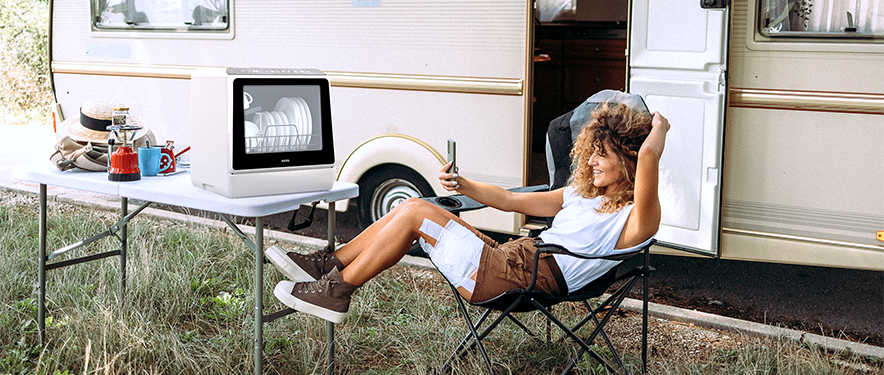
9. Make Your First Trip a Short One
When planning your first camping trip, it's important to start small and keep it simple. Consider taking a short trip to a nearby campground or state park for your first time out. This will allow you to get a feel for camping and test out your gear without being too far from civilization.
A short trip also gives you the opportunity to identify any potential issues with your gear or campsite setup before you embark on a longer trip. Plus, it's easier to pack for a shorter trip and less intimidating for those new to camping.
10. Camp Close to Home
If you're new to camping, it's a good idea to start by camping close to home. This has several advantages, such as the ability to easily return home if something unexpected happens or if you forget something important. Camping close to home also allows you to explore your local area and discover new camping spots that you may not have known existed.
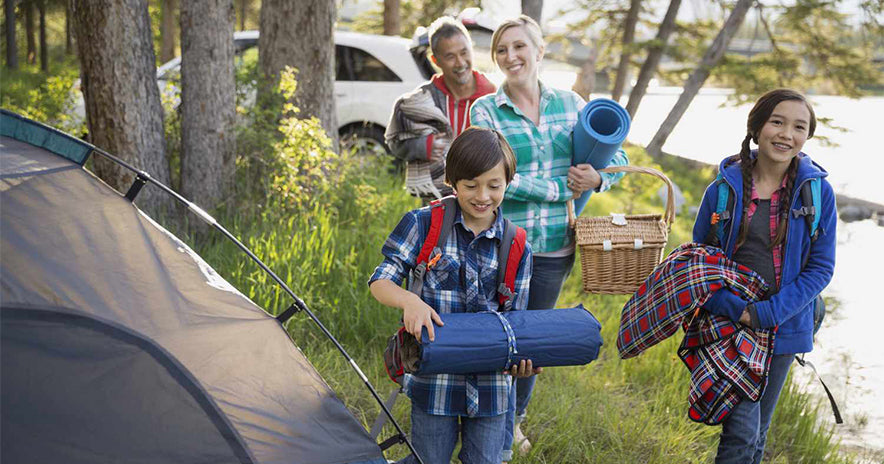
If you're planning a camping trip and want to explore your surroundings without the constraints of a car, consider taking an electric scooter with you. An electric scooter is a convenient and eco-friendly mode of transportation that can help you navigate narrow roads, trails, and paths that are inaccessible to cars.
One electric scooter worth considering is the TurboAnt V8 electric scooter. With its dual-battery design, the V8 offers an ultra-long range of up to 50 miles on a single charge. It’s powerful 450 W front hub motor enables you to tackle steep inclines and uneven terrain with ease. The V8 also features rear dual springs that effectively absorb shocks from road imperfections and 9.3-inch pneumatic tires that provide added shock absorption and minimize rider fatigue.
The V8's wide and spacious deck keeps both of your feet secure and comfortable while riding. Additionally, its foldable design makes it easy to transport and store, making it a great addition to any camping trip.
